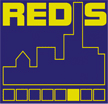
Developing science quarters/knowledge quarters:
On the basis of the baseline study following issues will be addressed within the network activities:
1. Integrated development of science quarters:
There is a growing recognition that science parks or ‘science quarters’ should be developed as an integrated part of the city, but there has been no systematic analysis of the conditions and policies required to develop successful quarters. ‘Integrated’ science quarters are embedded in the physical and social structure of the city, and this raises a number of issues such as how to involve the (large number of) stakeholders, how to ensure connectivity with adjacent areas, how to avoid large disparities etc. Moreover, the policy process of developing such quarters is very complex. Many actors are involved with different agendas. There are no ‘oneforall’ applicable ‘blueprints’ or guidelines, nevertheless the REDIS project aims to reveal common issues and lines in support of the integrated development of science quarters.
2. Elaboration of specific topics related to science quarters.
There is a lack of systematic knowledge about a number of specific themes and topics in relation to science quarters (examples are: marketing & branding, dealing with heritage, optimizing the ‘triple helix’ on local level, management models for areas). A number of individual case studies and descriptions of ‘good practise’ exist, but it lacks a systematic and comparative perspective that serves as basis for learning for other cities. In REDIS we intend to fill this gap by selecting a set of key themes (based on the needs of the partner cities as they are stated in the baseline study) and elaborate them in depth from a comparative perspective in our eight partner cities (also insights and lessons learnt from ‘best practise’ cases all over Europe will be integrated).
3. Dealing with intertwining policy levels.
There is a growing recognition that the ‘success’ of a science quarter is the result of a complex interplay between local, regional, national and European level factors and policies. However, it is less clear how these levels interact and how the interplay can be rendered more fruitful. National conditions and policies are important success factors for science quarters (national science policy, regulations etc.) but there is little knowledge about how to align ‘generic’ national approaches to the particular needs of particular cities. The same can be said of European policies and policy frameworks (EU framework policies, ERDF operational programmes, science policy etc.). These policies are not designed by cities but their effects are strongly felt ‘on the ground’. Here the challenge is to improve the alignment between policy levels, learning from the experience of cities. In REDIS we intend to create a set of broader policy recommendations for national and EU level on general conditions for science quarters. Moreover, we intend to inform and inspire the regional operational programmes that are of high significant for our partner cities. Therefore, managing authorities are involved in the REDIS project.
Science, as well as research and development, are essential for growth and employment throughout Europe. The objective of this network is to contribute to a more effective application of knowledge, creativity and innovation in the cities and thereby to the development of a knowledge-based European Economy. REDIS focuses on the interface between scientific promotion and urban development. It raises the issue of the sustainable development and management of Science Quarters.
Participants will have the opportunity to design together with their local actors a vision of future city development and an action plan to attain this vision. Recommendations and a handbook with guidelines and good practices will contribute to a better exploitation of the potential of knowledge and creativity.
The City of Magdeburg has the strategic aim to be a science city. The city administration has to develop the necessary basis in the infrastructure. At the same time we must create the frame in the fields of urban development and the social and cultural live of the city to enable the scientific development. Our local project is the transformation of a former commercial port into a science quarter. The expectations at the URBACT-Project were the creations of new ideas and the exchange of good practices with other European cities.
Who would you like to benefit from the work achieved in your project?
In result of the project REDIS exists a concrete plan for the urban development of the area, especially with a clear focus at the connection to the campus of the university. The plan is meanwhile accepted by the city council. Second important result is the better cooperation between all the stakeholders as an outcome of the ULSG. This cooperation will be sustainable.
